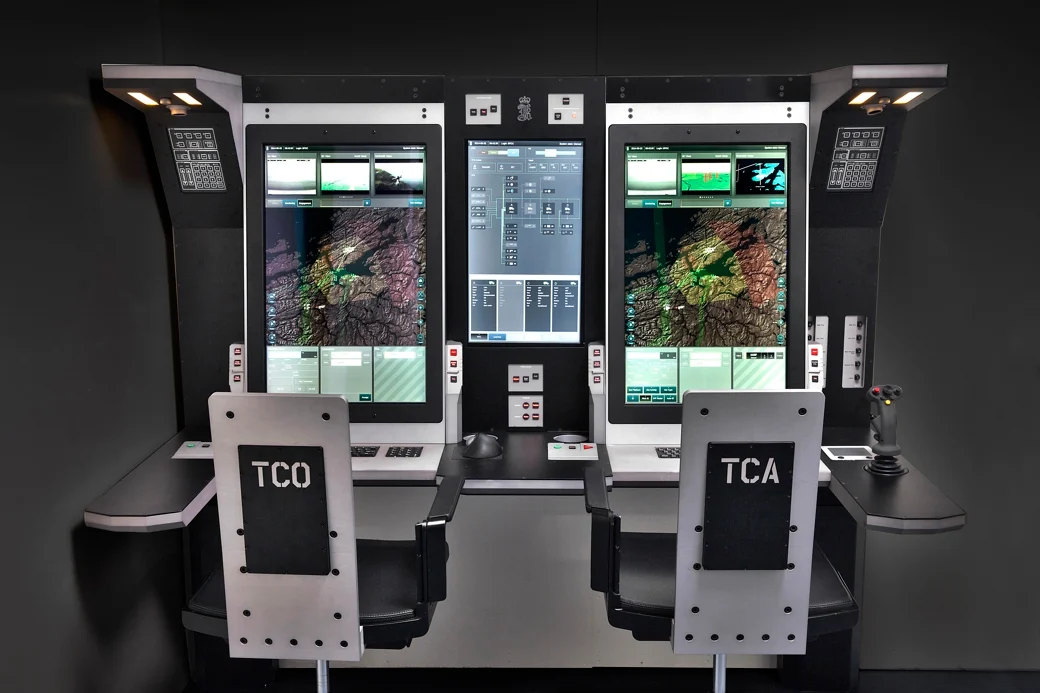Kongsberg Defence Australia is pleased to announce that it has been selected for a significant export order for the manufacture and supply of Naval Strike Missile (NSM) Coastal Defence System (CDS) command and control consoles to Kongsberg Defence and Aerospace. This landmark contract underscores Kongsberg Defence Australia’s expanding role in the global defence sector and its commitment to advancing Australia’s sovereign defence industry capabilities. The NSM coastal defence console, derived from the NASAMS air defence console that has recently been introduced into service with the Australian Army, will be wholly built in Australia, extending the established Australian production of command and control consoles for NASAMS capability. The execution of this contract will result in the creation of up to 30 positions within Kongsberg Defence Australia and across its supply chain, further bolstering the local workforce and contributing to local economic growth. The contract will also benefit Kongsberg Defence Australia’s Australian partners and suppliers, who will play an integral role in the production process, further strengthening Australian defence industry. This order will not only strengthen the strategic partnership between Kongsberg Defence Australia and Kongsberg Defence and Aerospace but will also showcase the innovative defence technologies being built in Australia for the global market.
John Fry, Managing Director of Kongsberg Defence Australia, expressed his enthusiasm for this achievement:”Being selected for this major export order is a testament to the expertise and dedication of our Australian team. It highlights our capability to competitively deliver world-class defence solutions and reinforces our ability and commitment to building advanced sovereign defence industry capabilities here in Australia. We are proud to support Kongsberg Defence and Aerospace and look forward to the continued growth and success of our local operations. Importantly this order will ensure that Kongsberg Defence Australia is able to be highly responsive to provide locally manufactured solutions for both Ground Based Air Defence (NASAMS) and Land Based Maritime Strike (NSM Coastal Defence System with StrikeMaster Launchers) capabilities should they be required by the Australian Defence Force”.

The Naval Strike Missile (NSM) is an anti-ship and land-attack missile developed by the Norwegian company Kongsberg Defence & Aerospace (KDA). The original Norwegian name was Nytt sjømålsmissil (literally “New sea target missile”, indicating that it was the successor of the Penguin missile). The English marketing name Naval Strike Missile was adopted later. The state-of-the-art design and use of composite materials is meant to give the missile sophisticated stealth capabilities. The missile will weigh slightly more than 400 kg (880 lb) and have a range of more than 185 km (115 mi; 100 nmi). NSM is designed for littoral waters (“brown water”) as well as for open sea (“green water and blue water”) scenarios. The usage of a high strength titanium alloy blast/fragmentation warhead from TDW is in line with the modern lightweight design and features insensitive high-explosive. Warhead initiation is by a void-sensing Programmable Intelligent Multi-Purpose Fuze designed to optimise effect against hard targets. The target selection technology provides NSM with a capacity for independent detection, recognition, and discrimination of targets at sea or on the coast. This is possible by the combination of an imaging infrared (IIR) seeker and an onboard target database. NSM is able to navigate by GPS, inertial and TERCOM systems.
An NSM coastal battery consists of three missile launch vehicles (MLV), one battery command vehicle (BCV), three combat command vehicles (CCV), one mobile communication center (MCC), one mobile radar vehicle (MRV) with TRS-15C radar, one transport and loading vehicle (TLV), and one mobile workshop vehicle (MWV). Each MLV carries 4 missiles and can be connected to the CCV by optical fiber or radio up to 10 km (6.2 mi) away; up to 6 launchers with 24 missiles can be netted together at once.[30] When installed on ships, NSMs can be deck-mounted in packs of one, two, three, four, or six launchers. Total installation weight, including electronics and cabling, is 8,600 lb (3,900 kg) for 4 launchers, 17,000 lb (7,700 kg) for 8 launchers, and 26,000 lb (12,000 kg) for 12 launchers. After being launched into the air by a solid rocket booster which is jettisoned upon burning out, the missile is propelled to its target in high subsonic speed by a turbojet sustainer engine—leaving the 125 kg multi-purpose blast/fragmentation warhead to do its work, which in case of a ship target means impacting the ship at or near the water line.















